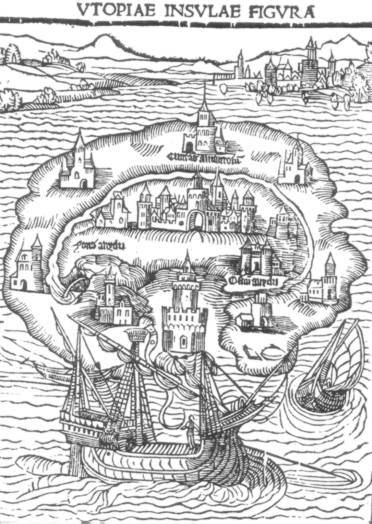


New Haven, CT: Yale University Press, 2014, with the same “Introduction” by Miller (vii-xxiii), “A Chronology of More’s Life” (xxv-xxxviii), an “Afterword” by Jerry Harp (141-60), “Notes” (161-187), “Suggestions for Further Reading” Updated by Jerry Harp (189-194), and an Index (195-201) Utopia. New Haven, CT: Yale University Press, 2011, with an “Introduction” by Miller (vii-xxiiii), “A Chronology of More’s Life” (xxv-xxxviii), “Notes” (141-162), “Suggestions for Further Reading” (163-165) and an Index (167-173) 2 nd ed.

Harmondsworth, Eng.: Penguin Books, 2003 with an “Introduction” by Turner (xi-xxviii), “Appendix: More’s Attitude to Communism” (114-17), “Glossary” (118-20), and “Notes” (121-35) Utopia A Revised Translation, Backgrounds, Criticism. Susan Bruce (Oxford: Oxford University Press, 1999), 1-148 with and “Introduction” to all three texts (ix-lxi) and “Explanatory Notes” to Utopia (213-31) Utopia. Indianapolis, IN: Hackett Publishing Co., 1999 with an “Introduction” by Wootton (1-37) “Utopia” in Thomas More Utopia Francis Bacon New Atlantis Henry Neville The Isle of Pines . Cambridge, Eng.: Cambridge University Press, 1995 Utopia. New Haven, CT: Yale University Press, 1965 with an Introduction” by the editors (xv-cxciv), “Commentary” (255-70, 585), “More’s Visit to Antwerp in 1515” by Hexter (571-76), “Vocabulary and Diction in Utopia” by Surtz (577-82), and an Index (587-629) Utopia: Latin Text and English Translation. For a consideration of some translations, see Elizabeth McCutcheon, “Ten English Translations/Editions of Thomas More’s Utopia.” Utopian Studies 3.2 (1992): 102-20. Louis, MO: Center for Reformation Research, 1981), 20-29. Thomas More: A Preliminary Bibliography of His Works and Moreana to the Year 1750 (New Haven, CT: Yale University Press, 1961), 3-57 and Constance Smith, An Updating of R.W. For early editions and translations, see R.W. The first English translation was published as A Fruteful and Pleasaunt Worke of the Beste State of a Publyque weale, and of the newe yle called Vtopia. The classic work presenting a better society on an isolated island and commenting on the current situation in England. His favorite pastime is going for long motorcycle rides on city streets, country roads, and beaches (where allowed, of course!).Visit Thomas More at thomasmorewriter.Libellus vere aureus nec minus salutaris quam festivus de optimo reip statu, deq noua Insula Vtopia

Although college-educated in the art, craft, and labor of writing novels, he is self-taught when it comes to science fiction and its associated tropes, its readers, and the best of its writers. He has read hundreds of sci-fi novels and short stories and has spent hours and hours watching movies and television shows in this genre.He holds an advanced degree in English with an emphasis in Creative Writing.
#UTOPIA THOMAS MORE DAVID WOOTTON SERIES#
Thus, the idea for the Mannahatta Series was born.Thomas More's favorite genre is science fiction, followed closely by fantasy. As he immersed himself in thoroughly researching the Indigenous people of North America, he discovered that there were very few sci-fi novels featuring people of these cultures as protagonists, and none at all about the original inhabitants of the island of Manhattan. Thomas More has always been fascinated by Native American culture. Toate formatele și edițiile Toate formatele și edițiileĬreateSpace Independent Publishing Platform –ĬreateSpace Independent Publishing Platform –


 0 kommentar(er)
0 kommentar(er)
